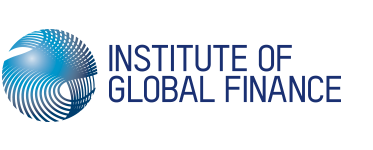The IGF has just completed a major research work on issues related to liquidity shocks, governance, systemic risk and global financial stability in collaboration with the Bank of England, Reserve Bank of Australia and Federal Reserve Bank of New York.
Given the recent global financial crisis, a number of issues are currently being considered by policy makers and market participants for creating a global financial system that is more stable and more inclusive. Liquidity shocks and governance are amongst some of the key issues that have been considered as important elements of a sound and inclusive global governance. Similarly issues that contribute to systemic risk and overall global and regional financial stability are factors that are considered for refinement and restructuring of the global financial system. This major project brings together some of the best researchers and policy makers together who are able to provide great insights and depth to financial and economic issues facing the global economy and the global financial system. The Deputy Governor of the Reserve Bank of Australia, Dr Philip Lowe, participated at this Forum. Dr Claudio Borio who is an eminent scholar and is now the Head of Economics and Monetary Department at the Bank for International Settlements ( Switzerland) is one of the key contributors to this publication. The Director of Financial Stability at the Bank of England, Andy Haldane, the Head of Stability at the Reserve Bank of Australia, Dr Luci Ellis, the Director of Research at the Federal Researve Bank of New York and Professor Fariborz Moshirian are amongst other major contributors to this publication. Furthermore, Andreas (Andy) Jobst, economist of the IMF is another major contributor to this publication.
This project involves a number of researchers from the following international institutions:
- Asian Development Bank,
- Bank for Internatinal Settlements,
- Bank of Canada,
- Bank of England,
- European Centreal Bank,
- European Investment Bank,
- European Systemic Risk Board, and
- International Monetary Fund
The following international researchers are involved in this particular project:
- German Institute for Economic Research (DIW Berlin),
- Goethe Universitat Frankfurt,
- Miyazaki International college,
- Technische Universitat Berlin,
- University of Macau,
- University of New South Wales,
- University of Otago,
- University of Western Ontario, and
- University of Zurich.
The papers included in this special issues are list as follows:
- Borio, C. (Bank for International Settlements), The financial cycle and macroeconomics: What have we learnt?
- Mercado, R. (Asian Development Bank) and C. Park (Asian Development Bank), Determinants of financial stress in emerging market economies.
- Betz, F. (European Investment Bank), Oprica, S. (Goethe Universitat Frankfurt), Peltonen, T. (European Centreal Bank), and P. Sarlin (Abo Akademi University), Predicting distress in European banks.
- Koch, C. (University of Zurich), Risky adjustments or adjustments to risks: Decomposing bank leverage.
- Li, Z. (University of Western Ontario), Mutual monitoring and corporate governance.
- Jobst, A. (IMF), Measuring systemic risk-adjusted liquidity (SRL) – A model approach.
- Langfield, S. (European Systemic Risk Board), Liu, Z. (Bank of England) and T. Ota (Bank of England), Mapping the UK interbank system.
- Qian, X. (University of Macau), Tam, L. (University of Macau) and B. Zhang (University of New South Wales), Systematic liquidity and the funding liquidity hypothesis.
- Anand, K. (Bank of Canada), Heinemann, F. (Technische Universität Berlin) and P. König (DIW Berlin), Guarantees, transparency and the interdependency between sovereign and bank default risk.
- Tongurai, J. (University of Otago) and C. Vithessonthi (Miyazaki International College), The spillover effects of unremunerated reserve requirements: Evidence from Thailand.
